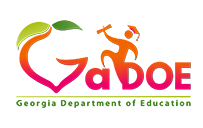Assessment and Accountability
Irwin County Schools
Candice Cobb
Assessment Director
229-468-7485
MILESTONE PRACTICE SITE
Experience Online Testing Georgia
RESOURCES FOR STUDENTS AND PARENTS
GMAS ACHIEVEMENT LEVEL DESCRIPTORS
Georgia Kindergarten Inventory of Developing Skills (GKIDS)
The primary purpose of GKIDS is to provide ongoing diagnostic information about kindergarten students’ developing skills in English Language Arts, Math, Science, Social Studies, Personal/Social Development, and Approaches to Learning. GKIDS will also provide a summary of student performance in English Language Arts and Mathematics at the end of the kindergarten school year.
Access for ELLs
Access for ELLs is administered annually to all english-learners in English leaners in Georgia. ACCESS for ELLs is used to determine the English language proficiency levels and progress of ELs in the domains of speaking, listening, reading, and writing.
Preparing for Tests: Suggestions for Parents
You can be a great help to your child if you will observe these "Do's" about tests and testing:
Do talk to your child about testing. It’s helpful for children to understand why schools give tests and to know the different kinds of test they well take. Explain that tests are like yardsticks. Teachers, schools, school districts, and even states use them to measure what is taught and how well students are learning what is taught. Most tests are designed and given by teachers to measure students’ progress in a course. These tests are associated with the grades on report cards. The results tell the teacher and the students how well they are doing. The results of some tests tell schools that they need to strengthen courses or change teaching methods. Still other tests compare students by schools, school districts, or cities. Tell your child that occasionally, he or she will take "standardized" tests. Explain that these tests use the same standards to measure student performance across the state or even across the country. Every student takes the same test according to the same rules. This makes it possible to measure each student’s performance against others.
Do encourage your child. Praise your child for the things that he or she does well. When children feel good about themselves, they can do their best on tests. Children who are afraid of failing are more likely to become anxious when taking tests and are more likely to make mistakes.
Do meet with your child’s teacher as often as possible to discuss his progress. Ask the teacher to suggest activities for you and your child to do at home to help prepare for tests and to improve your child’s understanding of the schoolwork.
Do make sure that your child attends school regularly. Remember, tests reflect children’s overall achievement. The more effort and energy your child puts into learning, the more likely it is that he will do well on tests.
Do provide a quiet, comfortable place for studying at home and make sure that your child is well rested on school days and especially on the day of a test. Children who are tired are less able to pay attention in class or to handle the demands of a test.


